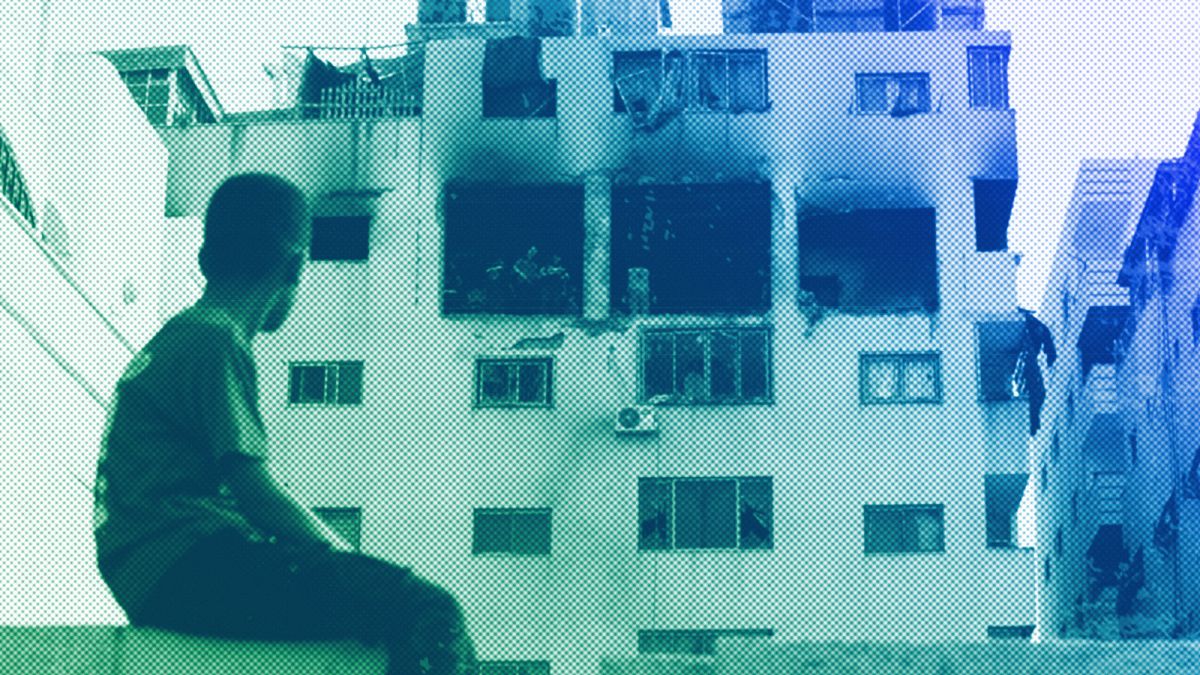Newly elected governments worldwide must act for children in conflict

The opinions expressed in this article are those of the author and do not represent in any way the editorial position of Euronews.
Over 50 countries have or will go to the polls this year. As new governments are formed, they must live up to their legal obligations to protect children in Gaza and beyond, War Child CEO Rob Williams writes.
We are halfway through one of the biggest election years in history. In 2024, people in 50 countries will vote to decide which individuals will lead their country. EU member countries have also already voted in their representatives in the European Parliament.
These leaders — both new and old — will be stepping into their roles at a particularly tumultuous time in history.
Conflicts raging in Ukraine, Sudan, and the Middle East have the potential to expand and become even more devastating. The role of the international community of states in calming and managing conflict is more important than ever.
Incoming presidents and prime ministers will be responsible for ensuring that the international laws established by the UN to protect civilians and, in particular, children are upheld.
Because 75 years ago, the world agreed to a set of rules to prevent the devastation of World War II.
Yet, despite these rules we once agreed to, the world is perhaps more dangerous for children today than it was then.
The most at-risk generation of children is about to be born
Right now, the daily death rate in Gaza far exceeds any other conflict of the 21st century. There, tens of thousands of children have been killed by Israel in flagrant violation of these same rules. Education has ground to a halt, and children are starving.
In Ukraine, Russia continues to strike schools and children’s hospitals, causing unbridled suffering.
Reports suggest that 24 million children in Sudan are exposed to brutality and rights violations. Violence in the Democratic Republic of Congo has forced around 2.8 million children to flee their homes.
Meanwhile, the climate crisis is already accelerating and promoting migration and conflict – with children on the frontline.
In the next 25 years, we need to reach net zero carbon emissions to prevent a global climate catastrophe. In that same quarter of a century, we will welcome 3 billion new children to the world.
Theirs will be the most vulnerable generation of children in history.
How children survive these climate and conflict challenges will depend on our leaders’ response to the question: is such a dangerous world for children acceptable?
Revulsion, inaction, complicity
The norms and institutions that have guided our shared moral compass are being challenged like never before.
Yet, there continue to be glimpses of these common morals. The wars in Gaza, Sudan, Ukraine, the Democratic Republic of Congo and beyond have been met with revulsion around the world.
The inaction, even at times complicity, of powerful governments to the threat of climate change has generated immense public anger.
Leaders newly elected, along with those who retain power, should heed their public’s outrage.
They will need to work together to demand that human rights treaties and international humanitarian law (IHL) are respected and call to account those who flagrantly abuse them.
We — public and civil society — will, in turn, hold them to account. Our new leaders need to support the role of civil society organisations in defending the international rules-based system.
They should avoid undermining this system further by demonising human rights organisations or claiming that calls to respect IHL are motivated by bias.
It’s past the time for talk. Our leaders must act, led by the rules which preserve our collective humanity. For the sake of the children surviving a nightmare right now, as well as those faced with a nightmarish future.
Rob Williams is CEO of War Child.
At Euronews, we believe all views matter. Contact us at view@euronews.com to send pitches or submissions and be part of the conversation.
Related
A New Book Argues That What Happens in Europe Doesn’t…
Remaking the World: European Distinctiveness and the Transformation of Politics, Culture, and the Economy by Jerrold Seigel “No issue in world
Poland plans military training for every adult male amid growing…
Poland’s prime minister, Donald Tusk, has said his government is working on a plan to prepare large-scale military training for every adult male in response t
2025 European Athletics Indoor Championships: Ditaji Kambundji secures women’s 60m…
Switzerland’s Ditaji Kambundji walked away from the 2025 European Athletics Indoor Championships in Apeldoorn on 7 March with much more than her first Europea
Takeaways from the EU’s landmark security summit after Trump said…
BRUSSELS (AP) — European Union leaders are trumpeting their endorsement of a plan to free up hundreds of billions of








